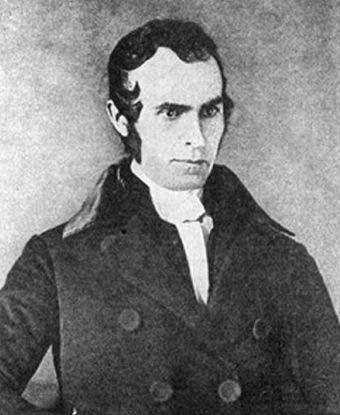Last updated: September 14, 2017
Person
John Greenleaf Whittier

public domain
Poet, journalist and abolitionist, John Greenleaf Whittier was known as one of the Fireside Poets, a group of popular American poets during the latter half of the 19th century. The Fireside Poets' adherence to poetic convention made their work suitable for memorization and recitation in school and at home around the fireplace. Whittier's immersion in Quakerism heavily influenced his thinking, as did his association and friendship with noted abolitionist, journalist and publisher William Lloyd Garrison.
Whittier's first poem to be published, The Exile's Departure, appeared in Garrison's newspaper, the Newburyport Free Press in 1826. Thereafter, Garrison encouraged his education, writing and active participation in the abolitionist cause. Under Garrison's tutelage, Whittier edited newspapers in Boston and Hartford. He also continued to write, publishing his first volume of poems, Legends of New England, in 1831. Two years later, Whittier published his antislavery pamphlet, Justice and Expediency, which catapulted him to prominence in abolitionist circles. He became a founding member of the American Anti-Slavery Society that same year. From 1838 to 1840, Whittier served as editor of one of the leading anti-slavery papers in the North, The Pennsylvania Freeman.
By the 1840s, Whittier broke with Garrison over how best to accomplish abolitionist goals. He favored gradual change via established political methods, while Garrison called for "immediate and complete emancipation of all slaves" and the use of passive resistance. After suffering a physical breakdown, Whittier ended his active involvement in the abolitionist movement and returned home to recuperate. He incorporated his views of justice, tolerance and humanitarianism into his writing, publishing Voices of Freedom, a collection of antislavery poetry, in 1846.
Following the Civil War and the passage of the 13th Amendment, Whittier shifted his focus, depicting nature, rural life and pastoral scenes. In 1866, he published his best known poem, Snow-Bound. Whittier's later collections of verse, including The Tent on the Beach (1867), Among the Hills (1868), and The Pennsylvania Pilgrim (1872), were also well received.
